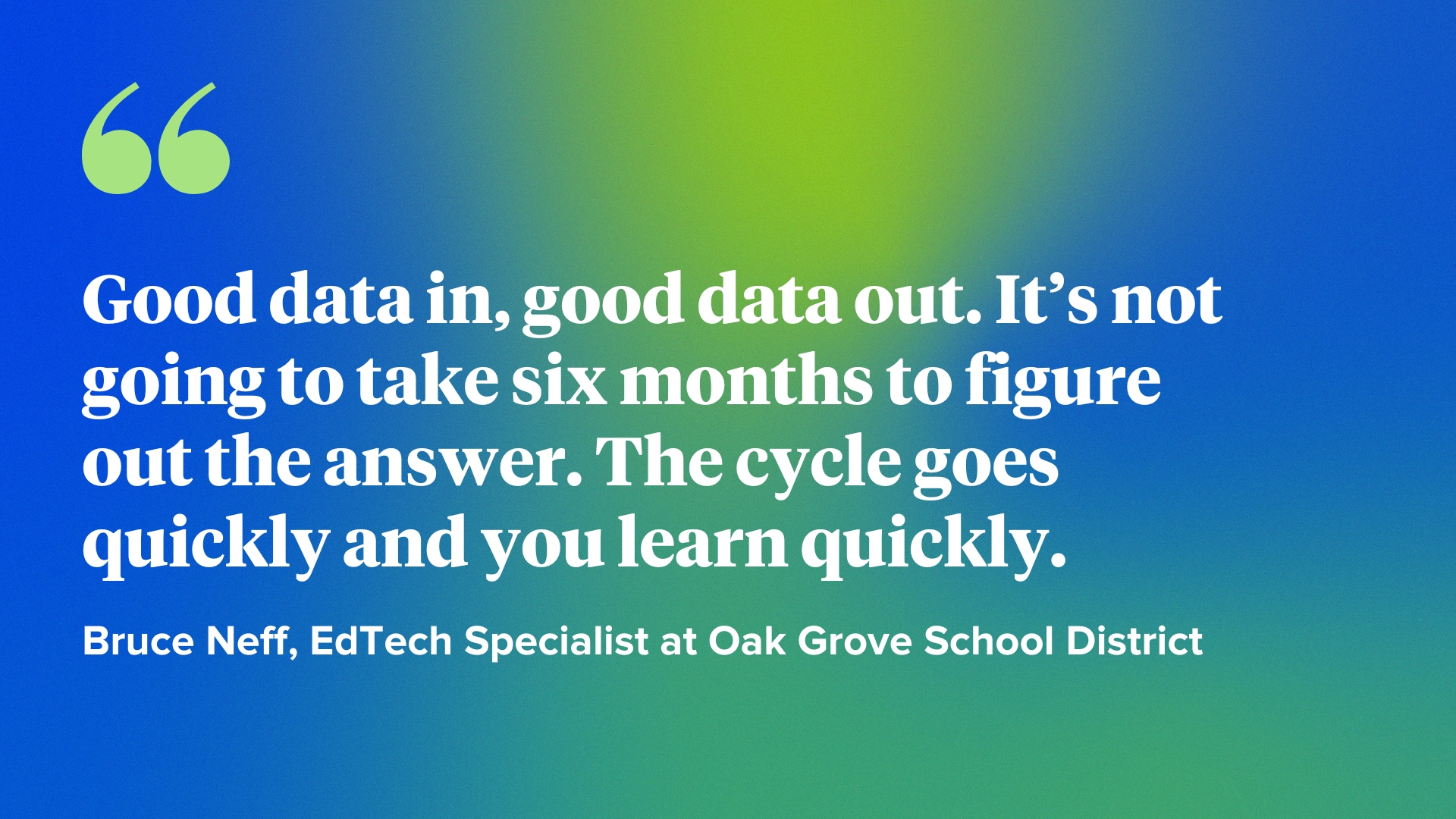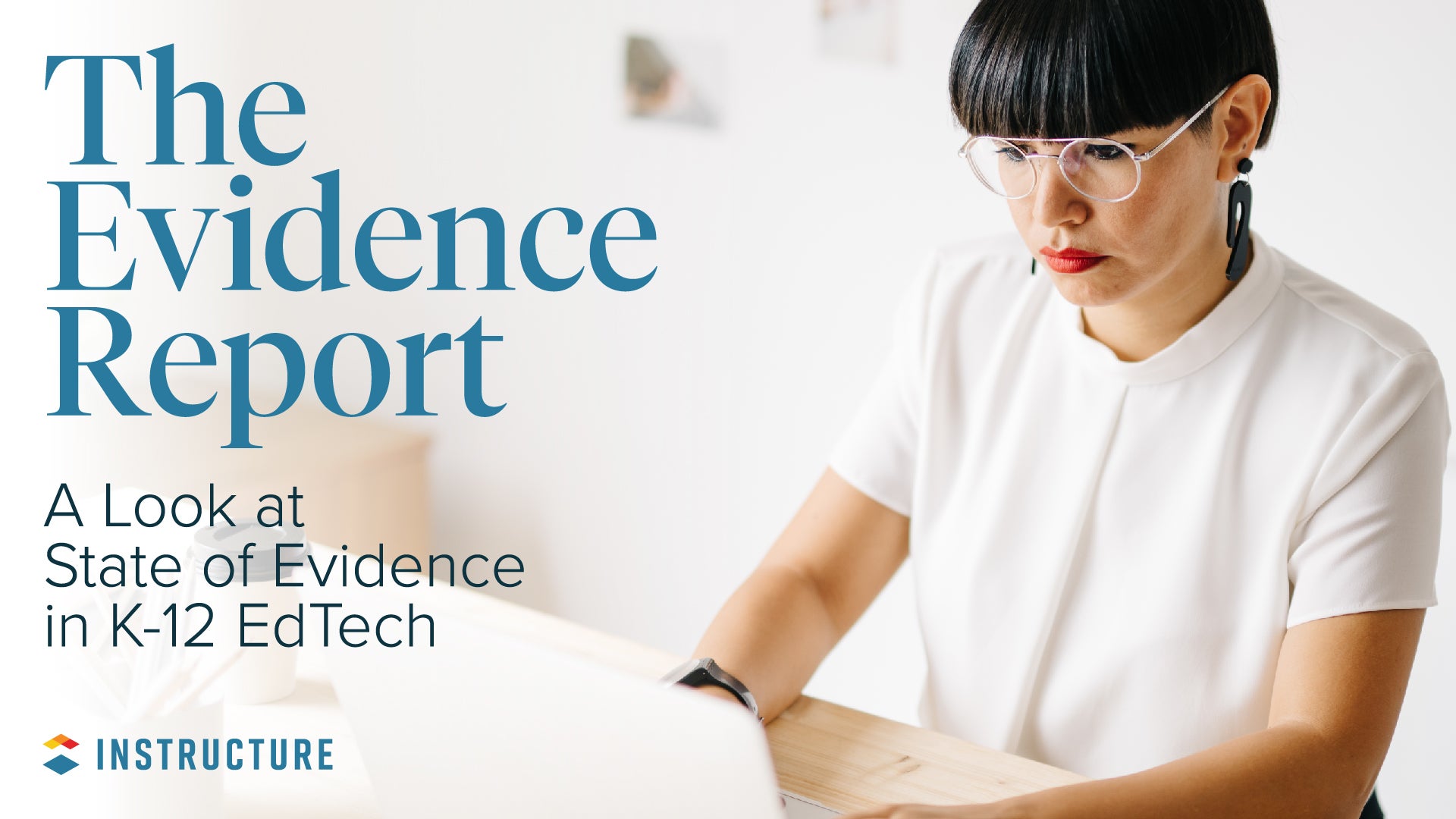
Teaching and learning have become highly digital endeavors. Technology tools are critical, ubiquitous parts of classrooms at all levels, whether digital or in-person. These tools are here to stay, but education leaders recognize that they need to be more selective about the right options for their unique students, instructors, and organizations.
Evidence can help leaders choose the right tools for their schools.
In our recent 2024 EdTech Evidence report, we looked closely at how top-used edtech tools in the K-12 space stack up using data aggregated from some of the industry’s most trusted third-party organizations that provide publicly accessible evidence across key domains.
Our findings? We have made progress, but we have a long way to go.
How things have changed and stayed the same.
Since 2023, more providers have committed to student data privacy and interoperability through the Student Privacy and Project Unicorn pledges, emphasizing their importance in K-12 education. Certifications in these areas, however, have yet to see the same increases, highlighting the need for districts to request that solution providers not only make pledges but follow through with certifications.
Additionally, ESSA evidence increased by 12 points since 2023–growing from 24% to 36%–mainly due to increases in companies seeking the Digital Promise Research-Based Design Certification (ESSA IV) and districts conducting more ESSA III rapid-cycle evaluations than ever. Our team has seen that districts use ESSA evidence during and after the procurement process by conducting rapid-cycle evaluations to understand how solutions work for their students.
Consequently, edtech providers must continue building their evidence base for initial purchasing decisions and pursue ongoing partnerships with states and districts to understand how solutions work in different implementation contexts.
When it comes to evidence, we should feel a sense of urgency.
Building strong evidence for edtech tools is complicated, time-consuming, and critical.
Gathering and analyzing evidence isn’t purely about research–it’s about taking a holistic view of the tool and the context in which it’s used. The following considerations are wide-ranging; however, they each must be considered to gain a meaningful understanding of a tool’s impact:
- relevant state and federal privacy laws
- cybersecurity attacks
- student demographics and achievement gaps
- applicable content standards
- interoperability with other tools
- rigorous research
All of these factors make the education landscape very quickly evolving. The rapid rise of AI tools like ChatGPT and the growing ubiquity of AI technology embedded in edtech tools puts this into sharp focus. Evidence can’t be an afterthought or a traditional slow and methodical process.
We need to recognize the urgency and construct creative avenues to build and share all types of evidence.
Strong evidence requires strong partnership.
The only way to effectively tackle the challenge of evidence is through an open, collaborative partnership between all actors on the education stage:
- Administrators
- Classroom educators
- Students
- Parents
- EdTech providers
- Investors
- Policymakers
- Foundations
We’re seeing significant momentum in this direction–as demonstrated by the eight unique organizations we cited for data in our Evidence Report.
We’re also experiencing it firsthand. Instructure’s LearnPlatform Research team has seen incredible partnerships between district leaders and edtech providers to build ESSA-aligned evidence that helps the district understand and refine their use of tools and helps the provider learn about contexts where their tools have the most impact on outcomes and what they can do to improve. We’ve also seen outstanding collaboration from industry leaders like ISTE, who recently added our ESSA Evidence Badges to their EdSurge Product Index listings as another data point readily available to help users find and understand tools.
LearnPlatform by Instructure: Leading with Evidence
LearnPlatform by Instructure has paved the way for education organizations and edtech providers to build, grow, and share evidence more transparently and efficiently since 2014. Our solution for centralized edtech management helps administrators discover and evaluate edtech tools by providing easy accessibility to multiple evidence points, such as:
- Student Data Privacy pledge adherence
- ISTE standards alignment
- 1EdTech certifications
- Comprehensive listings of ESSA-aligned and other supporting research
For edtech providers, LearnPlatform’s in-house research team of expert researchers with advanced degrees and What Works Clearinghouse (WWC) certification facilitate fast, iterative research designed to be accessible for educators. By taking a formative approach to research, we’re building deep partnerships across education and providing rigorous, scalable, and highly actionable results trusted by stakeholders at all levels.
Want to dive deeper into the state of evidence-based edtech? Read our full 2024 Evidence Report.


